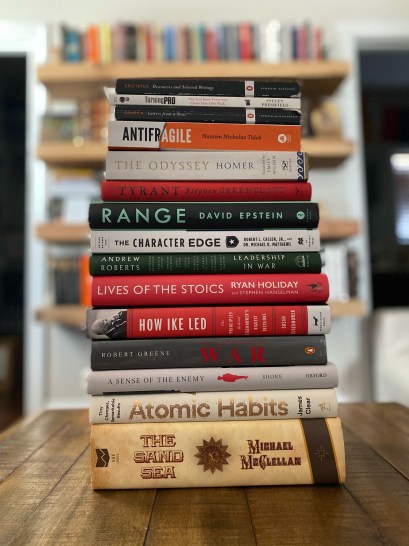
By Joe Byerly
Essayist Maria Popova recently wrote, “To look back on a year of reading is to be handed a clear mirror of your priorities and passions, of the questions that live in you and the reckonings that keep you up at night.”
Since 2018 (2019, 2020, 2021, and 2022) I have dedicated a few days at the end of each year to hold up a mirror to my priorities and passions. I do this by reflecting on and summarizing the lessons I have learned from the books I have read.
2023 was one of my busiest years. Despite leading an extremely fast-paced organization, going on family trips, and writing my own book project, I managed to read 43 books. Where do I find the time? To quote Seth Godin in The Song of Significance, “We don’t need more time. We simply need to decide.” I made a conscious decision to prioritize reading, writing, and reflection.
This year, I would like to share some valuable insights that books have imparted to me during the early hours of the morning, small slivers of time throughout the day, or the few minutes before bedtime.






















